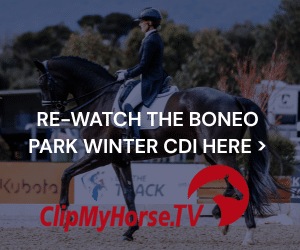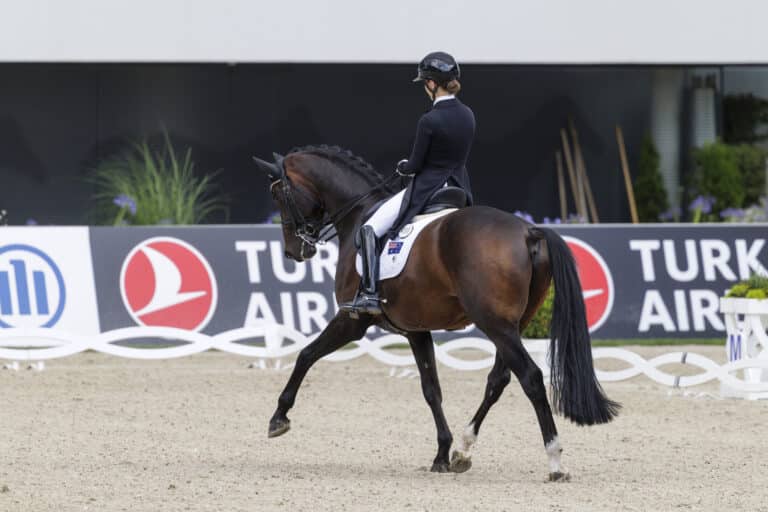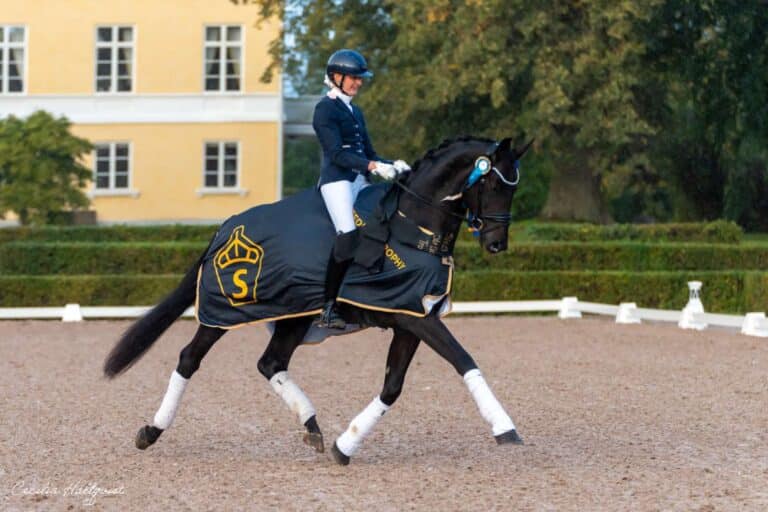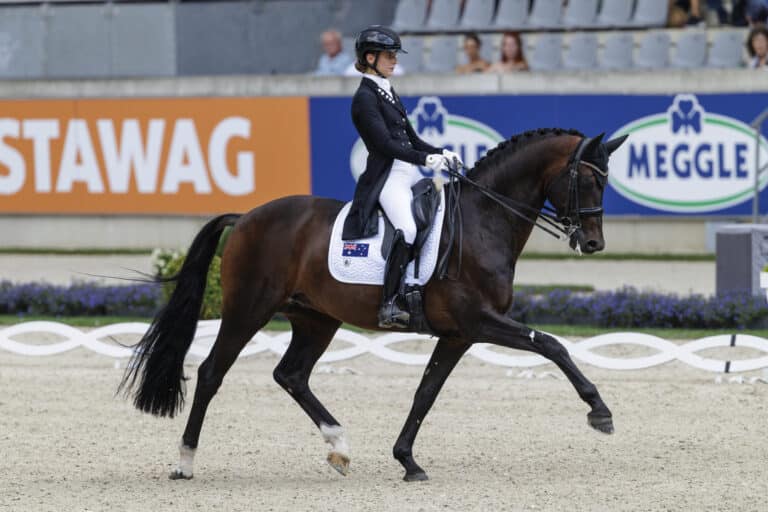This article has been published previously by Equestrian Life. To see what is in our latest issue, please click here.
Brett and DP Weltmieser.
© Franz Venhaus
By Brett Parbery
Coaching at an elite level is something that has interested me for some time. Being a sports nut, I have always listened intently to interviews with some of australia’s top coaches – the likes of Don Talbot (swimming), Wayne Bennett (rugby league), Rod McQueen (rugby union) and Paul Roos (AFL) just to name a few. I listen because I am interested in their coaching philosophy. I want to get an insight into how these elite sports coaches manage their personnel in both individual and team sports and how they inspire athletes to deliver extraordinary performances for their team or country in the international sporting arena.
I am relatively new to the game of coaching elite level riders. While I have been coaching dressage for many years now, my experience with coaching at an international level is somewhat limited. From 2005 to 2007 I was the appointed Dressage coach of Singapore, assigned specifically for the South East asian games. Also during this period, I worked with other asian countries and provinces in the equivalent of their national games. Until now, all of my australian representative duties have been as a competitor – an australian team member at the 2010 World Championships and having been through two olympic selection campaigns.
But, while I may be new to the coaching game, I have been preparing myself for this responsibility for as long as I can remember. I am organised and ready.
Delivering your best performance on the day of competition is a difficult equation when you are a sportsperson, but add an animal into the mix and the uncertainty escalates. Then, multiply this uncertainty over three disciplines and you have the Three Day Event. In the subjective dressage phase, you then have to account for the personal preferences of the three judges, who by virtue of human nature, have their own individual opinion of how dressage should look.
To give an example, one part of my job is to have analysed the dressage test to each and every footfall. It is then a case of having assisted each combination in constructing what I call a ‘game plan’ for executing each exercise within the test. Part of the ‘game plan’, is rehearsing step by step the riding of the test, both on and off the horse. When off the horse, we use mental visualisation techniques. This not only helps each rider to rehearse the test, but also gives them a chance to fully test the level of concentration they will need to execute the ‘game plan’ to perfection. getting into such a state of maximum concentra- tion is something that has to be practiced. Part of the practice is to work out the best routine that brings you to this concentrated state of mind. Some people like to sleep, some like to walk, some like to be with friends, others like to be alone. Personally, I like to find a quiet place, lie down, close my eyes and relax myself. I like to play a computer game or two and maybe talk to family on the phone. But, what works for my magic five eventing riders? That’s my job – to find out. and, once we have found out, then it’s about offering them the chance to rehearse and fine tune their routine.
Some people also have preferences as to who they want around them in the hours leading up to the time to compete. For example, I like to be around a quiet but organised group of people, who all know what their job is and who go about their work with organised professionalism. I don’t like being around messy or loud people, or those who don’t know their job. That distracts me too much and doesn’t allow me to reach my best level of focus. As part of my coaching job, I need to get this information from each of the riders and then assist them to put those right people in place.
The overall way of going with the horses is something that I have been working on with all of the squad members previously.
As a person trying to learn my craft as an elite level coach, I often reflect on the wisdom of one of sport’s greatest philosophers, rugby league coaching legend, Jack gibson. While I am not a big rugby league follower, I remember him saying, ‘in my role as coach, it’s not what i am doing that concerns me, but what i am not doing that makes me uneasy’.
READ THE LATEST NEWS ARTICLES HERE







